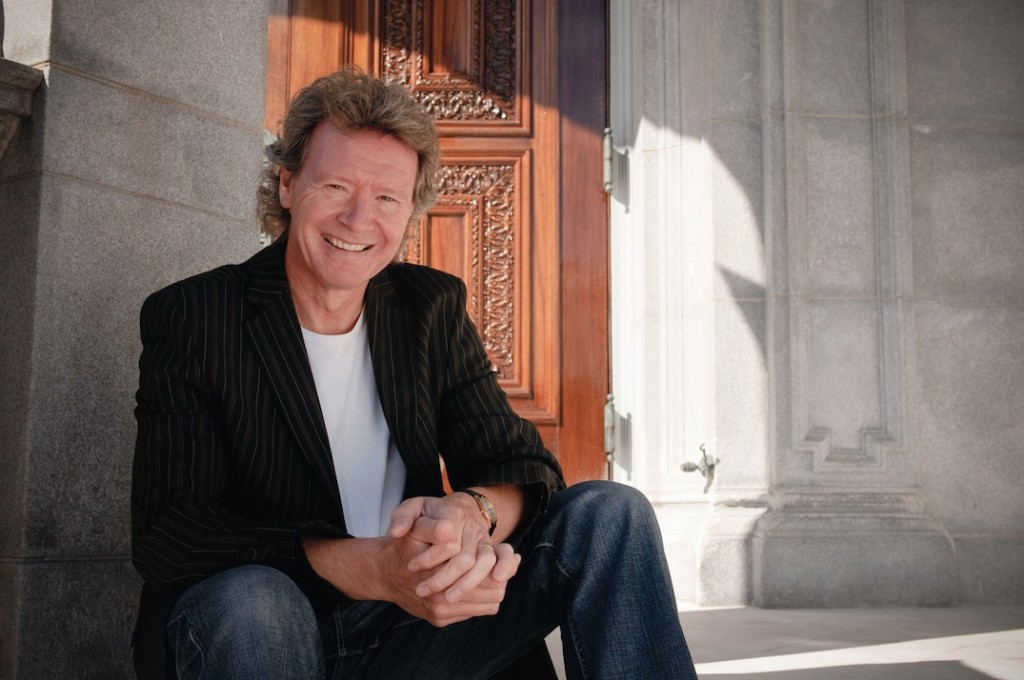Handel and Haydn Society points up musical contrasts with Bach and Byrd

Harry Christophers led the Handel and Haydn Society in a program of William Byrd and J.S. Bach Friday night at Jordan Hall.
The Bach and Byrd” program presented by the Handel and Haydn Society Friday in Jordan Hall offered a study of the subtle contrasts between the comfortably Protestant German master and an English Renaissance composer who had to contend with religious strife on both a personal and creative level.
The Handel and Haydn chorus began the evening with a rather pedestrian performance of the plainchant Veni creator spiritus that was only enlivened by the dispersement of the singers throughout the hall and their gradual ascent to the stage. Conductor Harry Christophers then led them directly into William Byrd’s lively motet Laudibus in sanctis, unleashing the beauty of their full sound and complete command of subtle dynamics and articulations.
The animated joy of Laudibus in sanctis was well countered by a set of three of Byrd’s more solemn pieces in the second half. Organist Ian Watson wrung all the pathos possible out of the introduction to Ye Sacred Muses, perfectly setting up tenor Stefan Reed’s sensitive rendering of Byrd’s lament for his teacher and colleague, Thomas Tallis.
This song was followed by the Agnus Dei from Byrd’s Mass for Four Voices, performed by a quartet seated in a semicircle to the side of the stage, in honor of the fact that Catholic services were performed in private during the religious conflict of Byrd’s time. Soprano Sonja Dutoit Tengblad, alto Emily Marvosh, tenor Patrick Waters, and bass Woodrow Bynum passed the phrases of Byrd’s imitative counterpoint around with a seamless consistency that gave the work the intimacy of a loving conversation among friends. This final set of works by Byrd concluded with his Ave verum corpus, rendered here in a stately, yet relaxed manner that allowed the chorus ample opportunity for well-crafted phrasing.
In contrast to Byrd’s lively grace, Christophers’ interpretation of Johann Sebastian Bach’s motets tended to maximize their forceful and serious aspects. Even Margot Rood’s performance of the aria Bist du bei mir was rather formal, only loosening up to allow a bit of sentiment at the very end. While the chorus maintained a balance that allowed every line of counterpoint to be heard clearly, Christophers’ rendition of Jesu, meine freude (BWV 227) was almost unrelentingly stormy. The two trios provided much needed respite with their warmth and intimacy. The first, “Denn das Gesetz,” beautifully performed by Tengblad, Thea Lobo, and Jessica Petrus, was the standout and spotlighted the charm of Bach’s melodies.
The ensemble did manage to relax enough in Komm, Jesu komm (BWV 229) to find a moving sense of yearning in its antiphonal phrases and soaring soprano lines, even in the more animated second half. Again, the chorus supplied Bach’s score with well-paced dynamics and judicious articulations that intensified each phrase without obscuring any of the texture.
The concert ended with a rousing performance of Singet dem Herrn ein neues Lied (BWV 225). While the extensive ornamentation in sections at times challenged the chorus’ clarity, this motet provided a final showcase for the ensemble’s expert handling of Bach’s contrapuntal textures.
The program will be repeated 3 p.m. Sunday. handelandhaydn.org
Posted in Performances



